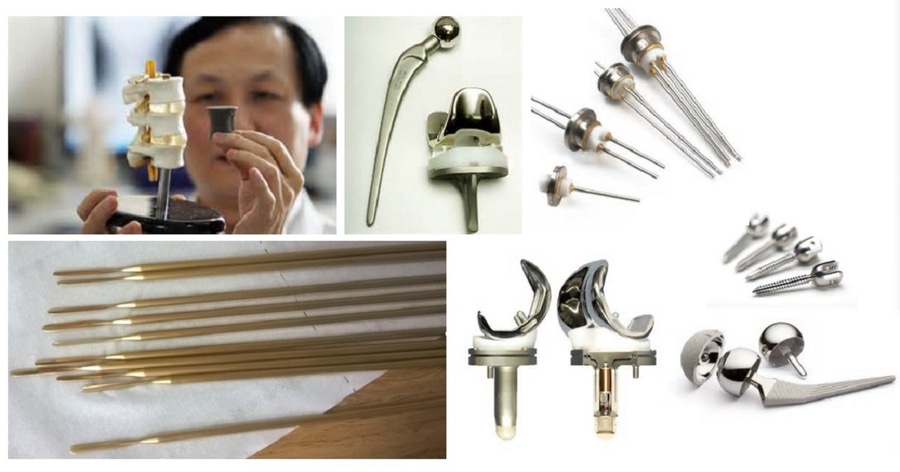
#Product Trends
Biocompatibility by PVD Coatings on Medical Devices
Biocompatibility Films Deposition
The biocompatibility of a coating is a prerequisite to its use on medical devices.
For this reason, we has tested the biocompatibility of all the coatings that it applies, with the exception of TiN, which has been widely reported to be biocompatible.
Coatings are certified biocompatible based on a series of tests conducted by an independent biological-testing laboratory. These tests were conducted in accordance with ISO 10993-1 guidelines for materials that experience short-term body contact. The results indicate that TiN, ZrN, CrN, TiAlN, AlTiN are acceptable for external and internal medical devices that contact bone, skin tissue or blood.
Biocompatibility tests completed include the following:
1. Sensitization: no significant evidence of causing delayed dermal contact sensitization in a guinea pig.
2. Cytotoxicity: no evidence of causing cell lysis or toxicity.
3. Acute Systemic: no significant systemic toxicity or mortality.
4. Intracutaneous: no evidence of significant irritation or toxicity in rabbits.
5. Genotoxicity: not mutagenic.
6. USP Muscle: non-irritating to muscle tissue.
7. Hemolysis: nonhemolytic, compatible with blood.
# Coating Film Color Hardness HV Coefficient of Friction Biocompatibility Testing
1 TiN Gold 2300-2500 0.35 Pass
2 CrN Silver 2000-2200 0.35 Pass
3 TiN/TiCN Bronze/Gray 2800-3200 0.3 Pass
4 AlTiN Violet/Black 3000-3400 0.35 Pass
5 TiAlN Copper/Bronze 3000-3200 0.4 Pass
6 ZrN Pale Gold 2300-2500 0.35 Pass
7 DLC (a-C:H) Black 2000-3000 0.1 Pass
8 AlTiCN Black 1200-1800 0.2 Pass
9 AlTiN Black 1200-2000 0.2 Pass
Note: The data generated from laboratory samples. Coating films properties may vary depending on customer's material, surface condition ( high polished or others) and products 3D geometry.)
Reference:
1. Pappas and Buechel, 41st Annual ORS Meeting, March 1994.
2. Coll et al, Surface Coating Technology, 1988.





